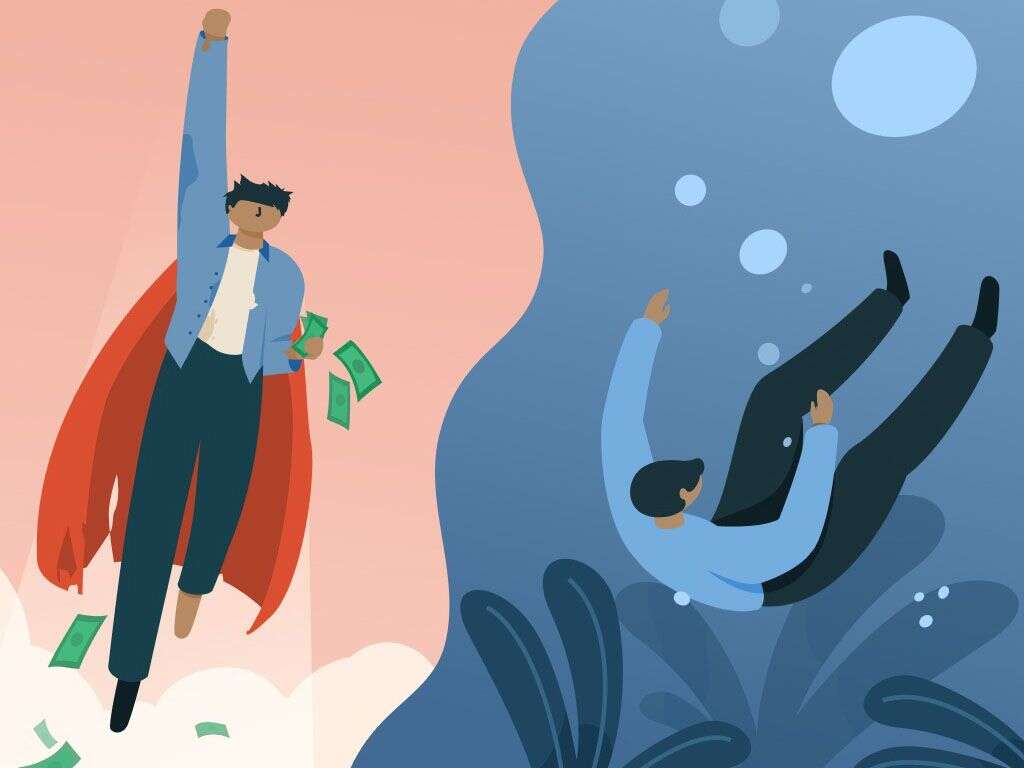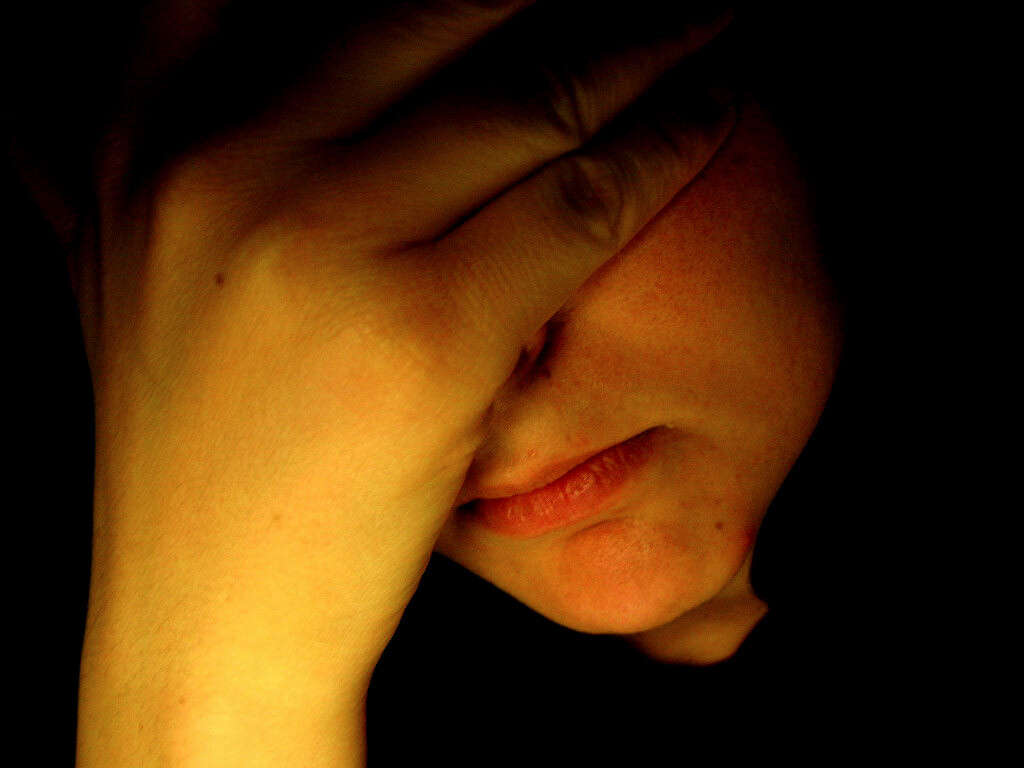10 Bipolar Disorder Symptoms
Bipolar disorder is described as a group of conditions characterized by alternating episodes of mania and depression. Three main conditions fall within the bipolar disorder spectrum: Bipolar I Disorder (BPI), Bipolar II Disorder (BPII), and Cyclothymia. Usually, patients with BPI experience episodes of severe mania that may require hospitalization, whereas patients with BPII suffer from hypomanic episodes that result in less dramatic symptoms. On the other hand, people with cyclothymic disorder may experience hypomanic symptoms that are milder and develop over a larger period of time (usually 2 years).
The exact cause of bipolar disease is still unknown, nevertheless, researchers believe that there is a significant genetic component to it. People with a first-degree relative with bipolar disorder are 7 times more likely to suffer from this condition.1Stephen Soreff, M. (2020, May 03). Bipolar Disorder. https://emedicine.medscape.com/article/286342-overview The condition usually appears during early adulthood but it can be seen in people of all ages, including teenagers and even kids.
Psychotherapy and medications are very important to manage this condition and the treatment options will vary depending on the specific disorder and the current phase that the patient might be in (either mania or depression). Sadly, many patients with bipolar disorder have suicidal ideation and some of them actually try to harm themselves. Therefore, it is important to recognize the signs and symptoms associated with this condition as soon as possible in order to get these people the help that they need.

1. Grandiosity
Our self-esteem is a crucial component of our personality. Many factors will shape the way that we see ourselves and will determine how confident we can be during different situations. Naturally, some people might have a personality that imposes and stands out compared to others, and this is perfectly normal. The problem comes when an individual develops problems with others due to a constant belief of superiority and greatness.
A grandiose behavior is a key finding in patients with a manic episode. They will usually feel invincible and superior to the rest of the world. They can act selfishly due to the increased self-esteem and it will usually cause them problems in their social and work environment.

2. Sleep Disturbances
Sleep patterns may vary from person to person. A child is expected to sleep more than an adult, and this is perfectly normal. Nevertheless, sleep is vital for us to function properly. Sleep deprivation is known to cause a dramatic decrease in our cognitive skills and eventually, it can lead to very serious health complications.
People going through a manic episode will tend to sleep less than usual. On the other hand, people struggling with depression might find themselves either sleeping more than usual or having insomnia. These symptoms must be present for more than two weeks in order for them to be associated with a bipolar disorder diagnosis and other conditions such as substance abuse must be ruled out first.

3. Flight of Ideas
Our brain is constantly working even when we think it is not. Usually, the ideas that we make in our heads tend to become words that we exchange with others in order to establish a conversation. Some mental conditions like schizophrenia and bipolar disorder may cause our brains to have too many ideas at the same time, causing us to speak rapidly and sometimes incoherently.
Patients with bipolar disorder tend to have a chaotic train of thought during a manic episode. The constant bombardment of ideas may cause them to speak rapidly and to change subjects abruptly without making any sense to others.

4. Difficulty Concentrating
Concentration can be described as the act of consciously focusing our attention on a certain object or activity. It is a key feature of a person’s cognitive ability and it allows us to perform activities that require focus and precision. Our attention span is limited and many factors may modify it. Stress, mental fatigue, and many other situations may alter our concentration momentarily. On the other hand, there are conditions that cause cognitive decline, which may decrease our capacity to concentrate.
People with bipolar disorder tend to have problems concentrating. This might be due to the flight of ideas that they usually endure. During a manic episode, patients tend to have more energy to perform tasks. Some patients might use this extra energy in a goal-oriented way and get things done. On the other hand, patients with BPI will usually try to do too many things at once without concentrating on any of them.

5. Irritability
Irritability is a hard symptom to describe due to its subjective nature. Most pediatricians agree that irritability can be described as the abrupt change in behavior of a child which is characterized by excessive crying and restlessness despite multiple comforting attempts. This is one of the most important symptoms in young children as they are unable to express their symptoms using words. It is a non-specific symptom that can be associated with many conditions.
Patients with bipolar disorder tend to be extra irritable during a manic episode. They can be more sensitive to the things that other people say to them, causing them to appear moody. These patients also tend to have problems receiving criticism from others. This could be associated with the feeling of grandiosity they usually have.

6. Altered Libido
Sex drive is a crucial part of our behavior. It is an evolutionary trait that ensures the survival of the species. Libido will vary from person to person. Some individuals might be more sexually-driven than others and this is perfectly normal. Nevertheless, there are many conditions that may cause a person to have problems with their libido.
Patients with bipolar disorder will tend to have an increased libido during their manic episodes. This will usually be associated with increased self-esteem and the feeling of grandiosity. It is important to notice that sometimes, this issue can cause them to engage in dangerous behaviors as well. On the other hand, patients struggling with depression tend to have markedly decreased libido.

7. Depressed Mood
Feeling sad and not being interested in activities that normally cause us pleasure or joy are common descriptions of having a depressed mood. The duration and intensity of these feelings are going to determine if a person is struggling with depression or if it is something momentary like grieving the loss of a loved one.
Patients with BPI and BPII tend to have episodes of depressed mood that alternate with their manic episodes. This symptom needs to be present for more than two weeks in order to be associated with bipolar disorder. Patients with Cyclothymia experience a more insidious onset and the depressed mood tends to last for several months to even years.

8. Fatigue
Fatigue can be described as a general feeling of exhaustion. Usually, this symptom improves with adequate rest, but depending on the source of the problem, it may not improve at all. It can be triggered by exercise, stress, and work-related activities. It is a non-specific symptom that can be associated with many conditions like anemia and anxiety, to name a few.
During the episodes of mania, patients tend to have an overflow of energy. On the other hand, during depressive episodes, they usually feel tired and fatigued. This is a normal finding in patients struggling with depression and bipolar disorder.

9. Losing Interest Easily
Every person is going to be motivated by something that they find interesting. Whether it is a hobby or a profession, our interests are going to be a crucial part of our lives. It is normal to lose interest in particular things as we grow old and become more mature, but sometimes our mental state can interfere with our usual behaviors.
Losing interest in things that you usually enjoy could be a possible sign of clinical depression and/or other affective disorders. Patients with bipolar disorder can cycle in and out of depressive states, causing them to suddenly lose interest in many things that they tend to enjoy.

10. Suicidal Ideation
Suicidal ideation can be described as having intrusive thoughts about committing suicide. It can go from thinking about it, to actually planning ways to do it. Not all people that have suicidal thoughts are going to attempt suicide, but sadly, come do. Therefore, it is important to seek medical attention as soon as possible in order to get the help required.
Suicidal ideation is one of the clinical features that characterize depressive states. Depressed people tend to have low energy levels that keep them from actually attempting suicide, but patients with bipolar disorder fluctuate between episodes of depressed mood and euphoria. During the manic episodes, their energy level rises and if the person is not in a good state of mental health, they might end up hurting themselves.









